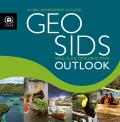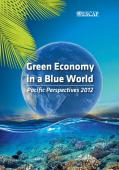Rapidly growing emerging economies, such as Brazil, China, India and Indonesia have joined the ranks of major industrialized countries as significant emitters of greenhouse (GHG). Their rapid economic growth has, however, brought about considerable environmental degradation, health costs, material damage, and a decrease in agriculture productivity. The notion of “green growth” has been proposed as a way out. This paper examines the case of Indonesia and evaluates its search for green growth through an approach that combines a so-called Energy Mix Policy and a REDD+ program.

This report examines the diverse realities of Small Island Developing States (SIDS) through an integrated approach. While SIDS have bountiful supplies of renewable resources and unique cultural assets, they often face daunting challenges resulting from isolation and remoteness coupled with climate change, natural disasters, and out-migration. Furthermore, global financial shocks and increasing fuel and food prices are threatening core economic sectors such as tourism.
Built on combinations of realistic outlooks, this report develops an ensemble of four island-centric futures: the blue-green economy; technology leapfrogging; priority to island community and culture; and reconnecting with nature, to help individual states consider policy choices that best respond to their needs. This report shows that there is much that SIDS can do proactively to anticipate environmental problems and their economic consequences or even avoid them through innovative planning and action.
This report describes the progress achieved in relation to sustainable development since 1992 and the gaps still remaining. It draws attention to a pressing environmental, social, economic and institutional situation. Above all, however, it highlights the vast potential for advancing economic management towards a more comprehensive model in keeping with the notion of inclusive and sustainable development.
This study assesses progress in the Arab region towards the green economy. It reviews the adoption and implementation of policies to support the transition and examines the achievements of different sectors. The study identifies challenges and highlights potential opportunities for countries to green their economies. Given their vital economic role, the study focuses on the transition of small and medium enterprises (SMEs) to greener processes, products and services.

